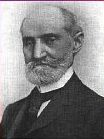Carbo Vegetabilis suited For the bad effects of exhausting diseases, whether in young or old ( Cinchona, Phosphorus, Psorinum ); cachectic persons whose vitality has become weakened or exhausted.
Persons who have never fully recovered from the exhausting effects of some previous illness; asthma dates from measles or pertussis of childhood; indigestion from a drunken debauch; bad effects of a long ago injury; has never recovered from effects of typhoid ( Psorinum ).
Ailments: from quinine, especially suppressed intermittents; abuse of mercury, salt, salt meats; spoiled fish, meats, or fats; from getting overheated ( Antim crud. ).
Bad effects from loss of vital fluids ( Causticum ); haemorrhage from any broken down condition of mucous membranes ( Cinchona, Phosphorus ).
Weakness of memory and slowness of thought.
Epistaxis in daily attacks, for weeks, worse from exertion; face pale before as well as after a haemorrhage.
Haemorrhage from any mucous outlet; in systems broken down, debilitated; blood oozes from weakened tissues; vital force exhausted.
Hippocratic face; very pale, grayish-yellow, greenish, cold with cold sweat; after haemorrhage.
Looseness of teeth, easily-bleeding gums.
Patients crave things that make them sick; old topers crave whiskey or brandy; want clothing loose around abdomen.
Weak digestion; simplest food disagrees; excessive accumulation of gas in stomach and intestines < lying down; after eating or drinking, sensation as if stomach would burst; effects of a debauch, late suppers, rich food.
Eructations give temporary relief.
Diseases of the venous system predominate ( Sulph. ); symptoms of imperfect oxidation ( Argentum nit. ).
Deficient capillary circulation causes blueness of skin and coldness of extremities; vital powers nearly exhausted; desire to be constantly fanned.
Hoarseness: < evenings; damp evening air; warm, wet weather; fails when exerted (< morning, Causticum ).
Awakens often from cold limbs and suffers from cold knees at night ( Apis ).
Frequent, involuntary, cadaverous-smelling stools, followed by burning; soft stool voided with difficulty ( Alumina ).
In the last stages of disease, with copious cold sweat, cold breath, cold tongue, voice lost, this remedy may save a life.
Relations. – Complementary: Kali carb.
Want of susceptibility to well-selected remedies ( Opium, Val. ).
Compare: Cinchona, Plumb., in neglected pneumonia, especially in “old toppers;” Antim tart. in threatened paralysis from inability to expectorate loosened mucus.
Opium : with lack of reaction after well-selected remedies fail to permanently improve ( Val. ).
Phosphorus in easily bleeding ulcers.
Pulsatilla, bad effects from fat food and pastry.
Sulph., acrid-smelling menstrual flow and erysipelas of mammae.
Carbo Vegetabilis Aggravation. – From butter, pork, fat food; abuse of quinine, bark and mercury; from singing or reading aloud; in warm, damp weather.
Amelioration. – From eructation; being fanned.

